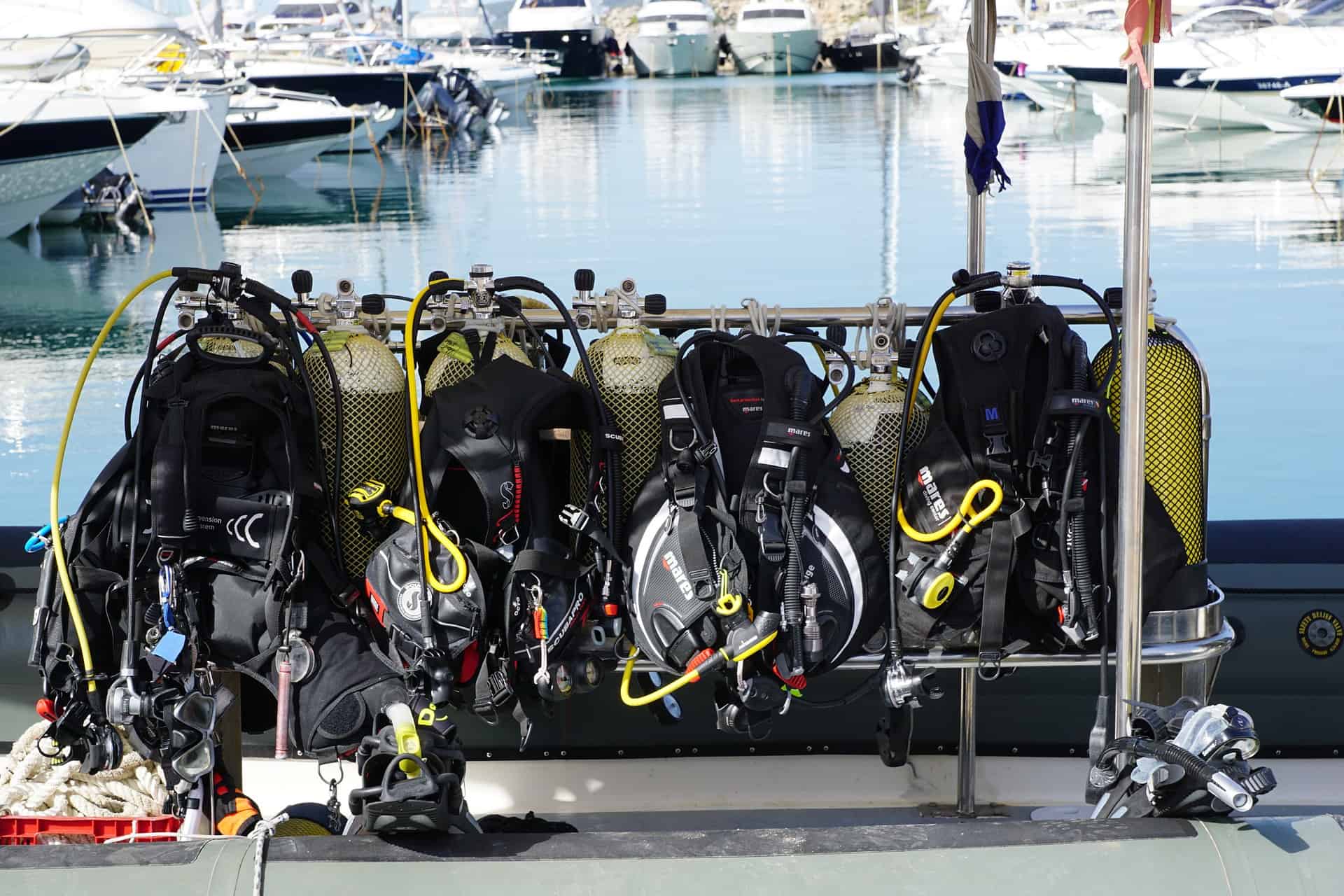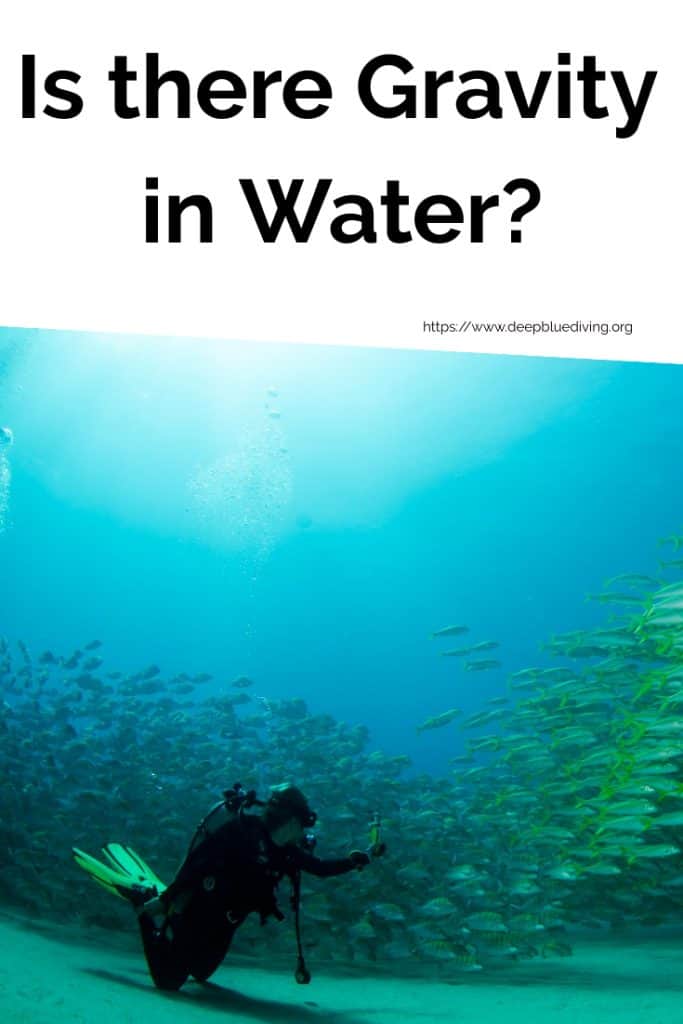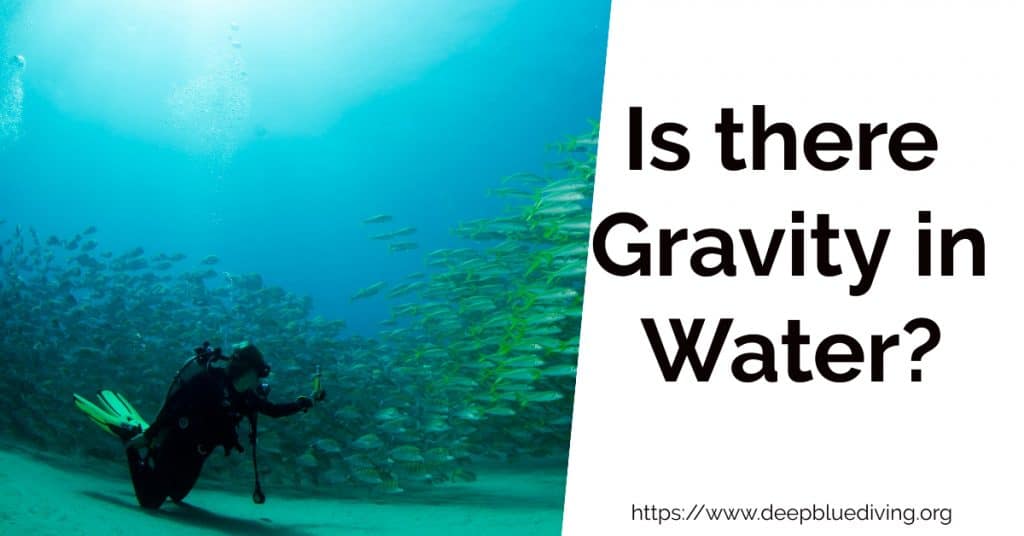Is There Gravity In Water? How does Buoyancy work underwater?
Is Gravity different when you’re underwater?
One of the best things about being in the water is the feeling of weightlessness you can get. There is something freeing about floating suspended perfectly in the water. This feeling immediately vanishes when you either climb out of the pool or back onto the boat.
With each step you take out of the water you can feel your body become heavier and heavier. Which raises the question, what happens to Earth’s gravity when you’re in the water? Why can you float weightlessly in the water only to be weighed down each step you get above the surface?
How is Gravity Different Under Water?
This question would probably make any physicist super excited to explain the details. It gets a little complicated, but the gravity on Earth is affected by a few things. Mainly the density of the stuff around the Earth and the shape of Earth.
If Earth were a perfect sphere where all the matter was the same, it would all have the same gravitational pull. Since it’s more like a weird egg that bulges at the equator and is flatter at the poles, Earth’s gravity varies. The difference in gravity depending on where you are, and how high or low you are is about 0.7%, which isn’t much.
Gravity in water will be slightly different depending on which body of water you are in, and where on the globe you are in. The force of Earth’s gravity underwater exploring the Arctic caves will differ from Caribbean Sea gravity. The difference in the gravitational force is so small you probably will not notice the difference in its effects in the various bodies of water.
One other factor to consider is that Earth’s gravity does not only work on the diver but also on the surrounding water. This means that you will only experience gravity in the form of being pulled down in the water if the same volume of water rises up.
The density of the object being placed in the water is also a factor. If the density is higher than the surrounding water then the object is pulled down through Earth’s gravity. The volume of water that’s replaced by the object rises up while the object itself experiences more gravitational pull and is forced down.
When you think about it, we can walk on land and experience gravity because the soil is denser than our bodies. In water, that’s not true and so we sink to a certain level.
The differential in the density of our bodies to water is less so we experience less force of gravity. Our bodies replace the volume of water at a given depth. In saltwater vs freshwater, we experience different pulls and we might not be dense enough to replace any volume of water with our body in very salty water!
What Makes Me Feel Weightless Under Water If It’s Not Gravity?
By now, you’re probably wondering what effect makes you feel weightless under water if it is not a lack of gravity. The thing that makes you feel you have no gravity when under water is called buoyancy. Buoyancy can have three stages that a diver is probably familiar with.
To understand buoyancy, you need to understand what density is. Density is the closeness of the molecules of a substance. Density is calculated and defined by dividing the mass of the substance by the volume.
Negative Buoyancy
Look at something that is sinking to the bottom of a pool of water, and you have an example of Negative Buoyancy. A rock when thrown into a pool will sink to the bottom. The reason this happens is that the density of the rock is greater than the density of the water.
Positive Buoyancy
If something refuses to sink, like a piece of foam, or inflated tube it has Positive Buoyancy. This can be seen when you inflate a balloon at depth and watch it rise to the surface. The density of the air inside the balloon is less than the density of the water.
Neutral Buoyancy
This is the honey pot for all underwater exploration and activity. Neutral Buoyancy occurs when the density of the object is equal to the density of the water. When your buoyancy is neutral, you float, perfectly suspended in the water.

Does Buoyancy Change Depending On Depth?
If you’re an avid diver, you may notice that at a certain depth you can no longer descend. Depending on your gear, your O2 tank, and other factors there will become a point where the water is denser than you can become. Why is this?
Pressure causes the water molecules to come closer together. While this will also occur to the things like the air in your buoyancy control vest and your tank, things like your weights and other solid objects will not feel the effects of pressure as much. This is because their molecules are already close together.
The change in density of the water and your buoyancy may make it feel like the earth is trying to push you away. You can feel this if you have been free diving without weights or fins.
Eventually, there is nothing you can do to overcome the positive buoyancy that you have at the increased depths. Your body won’t replace the volume of water due to the increasing density of the water around you.
This physical change in the environment may even make it feel like there is less gravity because you are less dense than the surrounding water. This is because while you cannot tell the differences in the water’s density, the physics do what they must do. Which is either to pull you down or push you up.
Air Density, Buoyancy, Pressure, And You
Now you know there is a different actual gravity all over the world, you know this isn’t really the reason you feel weightless under water. It’s never been gravity but always buoyancy, specifically neutral buoyancy. One of the hardest things about achieving neutral buoyancy is the fact we breathe air.
There are a few steps to breathing under water. First, you have a pressurized air tank. A tank filled to 2000 psi will be a lot heavier than an empty tank. Then you have the constant exchange of pressurized air, into breathable air, into the air in your lungs and exhalation.
This seems like a natural process and is probably one you think little about. But with every breath you take, you reduce the weight of the air tank.
Simultaneously you give yourself positive buoyancy with the air expanding in your lungs. Taking large breaths will cause you to go up and down like a little bobber floating on top of the water.
As you rise, if you are breathing in, you may notice your ascension picks up momentum. This is because the air in your lungs is expanding along with the pressurized air in your tank. Your breath and the effects of pressure on air at depth play a key role in your perception of zero gravity, neutral buoyancy.
Now that you understand everything about buoyancy and the zero-gravity feeling you get underwater, you are more than ready to explain it to the next person who asks why there isn’t any gravity underwater.
Understanding buoyancy as a simple principle can take a little time. But being able to execute perfectly neutral buoyancy during a dive takes years of practice. Now you have all the knowledge you need to get out there and practice your breath control and buoyancy.


